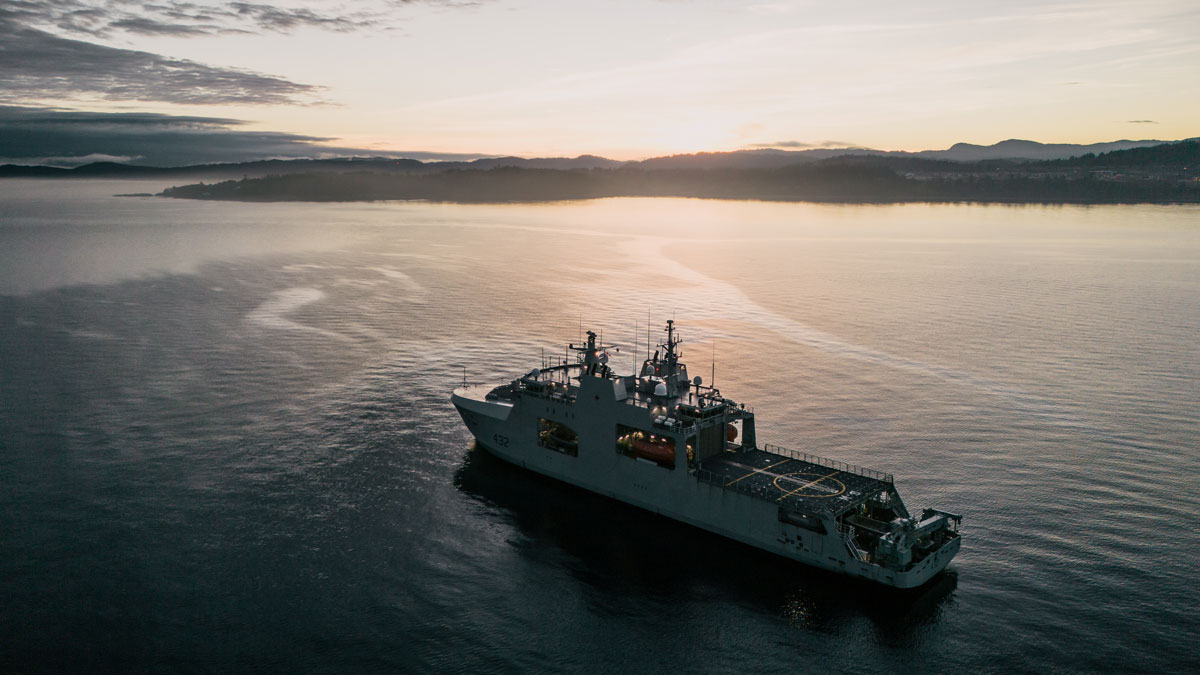About 18 months ago, many of us became aware of a Defence Procurement Review (DPR) being spearheaded by an Assistant Deputy Minister in Public Services and Procurement Canada (PSPC). Observers cannot find a government statement on this initiative on the internet, nor is it apparent that it has a target delivery date.
A recent brief at Vanguard’s C4ISR and Beyond conference spoke to this ongoing activity with terms like Continuous Capability Sustainment (CCS, an outstanding idea first proposed I believe by a now retired ADM from Defence well before DPR was launched), the development of different ‘pathways’ which I think are meant to accommodate the attributes of different technologies and commodities (presumably meaning different procurement strategies and perhaps in-service support strategies, no more one-size-fits-all), consideration guidelines which I believe are meant to render policy more flexible and relating to culture change, and musing about changing the lethargic approach to generating weapons platform requirements. More recently, being led out of the Department of National Defence (DND), an industrial defence strategy is also in development. I cannot be more definitive because I have been unable to find documentation of DPR or the other concepts mentioned. Furthermore, DPR consultation has not occurred broadly; instead, I have heard rumours that select organizations have been invited to offer ideas.
One wonders why so little progress is apparent and with very little transparency overall. The requirement for change to military procurement relating to speed to delivery was included in the April 2024 defence policy statement, Our North Strong and Free: A Renewed Vision for Canada’s Defence, under the section entitled Speeding Acquisition and Advancing Defence Procurement Reform. As well, the Standing Committee on National Defence released an indictment of the military procurement system and recommendations for change in June 2024 in their document A Time for Change: Reforming Defence Procurement in Canada.
Quite separately, there is no shortage of papers written by various observers outside the government regarding ways to reform defence procurement. Aside from my own contributions from the practitioner’s perspective, I would merely refer to two other excellent documents: the Canadian Global Affairs June 2020 paper entitled Toward Agile Procurement for National Defence: Matching the Pace of Technological Change, and the MacDonald Laurier Institute article in The Hub by Richard Shimooka in September 2023 entitled Canada’s Military is Being Left Behind, the premise being “our system of procurement is fundamentally broken’.
One would have thought that the list of items to tackle would have been abundantly clear, both at the strategy level and in the related tactical implementation. And yet, the lack or urgency and transparency of the DPR now underway is quite mystifying – one could at least have hoped for a name change to ‘Defence Procurement Reform.’
As I write this note, President Trump has been inaugurated and signed a flurry of Executive Orders. Canada is in the crosshairs of very large tariffs, and the President has opined that NATO nations need to move towards a defence spending target of 5% of GDP. With Canada aiming to reach 2% many years in the future, the message is clear that the USA’s polite (and occasional not-so-polite) encouragement to beef up spending on the Canadian Armed Forces has ended – as the politicians and journalists like to say, we are ‘having a moment’.
And yet, DPR gives every impression of plodding along. Just as happened when the current government directed work towards a ‘Defence Procurement Canada’ to conduct major weapons platform acquisitions in one agency rather than across three departments, the involved public servants failed to deliver based on the higher procurement priority of addressing COVID.
The phenomenon of bureaucratic inertia is a well-studied subject. While deliberate action can overcome the inbred resistance and risks involved with culture and process change, it is accepted to be a slow transformation evolution, short of the revolutionary approach being taken by President Trump.
For the first time in my memory, Canada has recently agreed to name a ‘fentanyl Czar.’ The use of independent experts or Czars and external advisory bodies or ‘brain trusts’ have been commonplace among our allies when reforming defence matters, but this has not been a common practice in Canada. Instead, the use of contracted consultancy companies has been widespread, but such input is usually shaped by interviewing the influential bureaucrats whose opinions are regularly parroted back to government after the initial recommendations have been massaged as required by the client a final report.
It is high time for Canada to appoint a Military Procurement Czar, who can hire his or her own brain trust of experts to reform our military procurement system ‘with all due dispatch.’ Eggs will be broken, and risks will be taken. Some acquisitions will become problematic as we embrace ways to accelerate deliveries. Many government procurement personnel will require additional professional development to build business acumen, likely including Deputy Ministers to be appointed to the activity. The risk-averse process-management –focused culture must change to one where “if it is not illegal, pursue expediency unless there is another very compelling reason not to do so.” Put simply, the required outcome is to eliminate the common Ministers’ lament that Defence needs no more money for procurement because the money allocated cannot be spent; a failing procurement system must cease being the Achilles heel to the readiness of the Canadian Armed Forces.
A Canadian election will happen in 2025, and I challenge the competing party leaders to protect Canada sovereignty and regain our reputation with allies as a nation serious about this one critical component of national security.
Rear-Admiral (Ret’d) Ian Mack served for a decade (2007-2017) in the Department of National Defence, with responsibilities related to the National Shipbuilding Strategy, three shipbuilding projects and four vehicle projects. Ian is a Fellow of the International Centre for Complex Project Management, the World Commercial and Contracting Association and the Canadian Global Affairs Institute.

